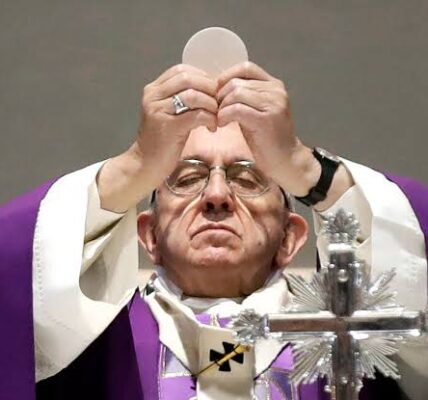What Are the Definitions of Schism and Excommunication in the Catholic Church?
A group of Poor Clare nuns in Spain decided to leave the Catholic Church, committing the canonical crime of schism and facing excommunication.Italian Archbishop Carlo María Viganò is facing a Vatican extrajudicial proceeding for schism.
What exactly do schism and excommunication mean in the Catholic Church? The explanation follows.
Schism As defined by the Catholic Encyclopedia,
schism is “the rupture of ecclesiastical union and unity, i.e. either the act by which one of the faithful severs as far as in him lies the ties which bind him to the social organization of the Church and make him a member of the mystical body of Christ, or the state of dissociation or separation which is the result of that act.”
Schism is defined in Canon 751 of the Code of Canon Law as “the refusal of submission to the supreme pontiff or of communion with the members of the Church subject to him.” Canon 1364 states that the penalty for this transgression is excommunication “latae sententiae,” which means it occurs automatically at the commission of the offense.
Excommunication Excommunication is the most serious penalty a baptized person can face, and it consists of being removed from the communion of the faithful of the Catholic Church and refused access to the sacraments.
According to the Catholic Encyclopedia, excommunication is “a medicinal, spiritual penalty that deprives the guilty Christian of all participation in the common blessings of ecclesiastical society.”
Penalties imply guilt, and the Church’s most severe penalty implies a significant violation. It is also a therapeutic rather than a spiteful sentence, meant not so much to punish the offender as to correct him and return him to the road of virtue,” according to the encyclopedia.
Why is someone excommunicated? Cardinal Mauro Piacenza, the Church’s senior penitentiary emeritus, stated in 2015 that the goal of excommunication is to bring “the guilty to repentance and conversion.” “With the penalty of excommunication the Church is not trying in some way to restrict the extent of mercy but is simply making evident the seriousness of the crime,” the cardinal explained.
Excommunication is more than just a penalty; it extends beyond preventing access to holy Communion.
According to Canon 1339, as well as excommunication, “in the case of behavior which gives rise to scandal or serious disturbance of public order, the ordinary can also correct the person, in a way appropriate to the particular conditions of the person and of what has been done.”

